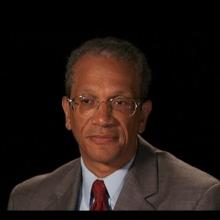Daniel Hastings
Cecil and Ida Green Education Professor in the Department of Aeronautics and Astronautics, Massachusetts Institute of Technology (MIT)


Cecil and Ida Green Education Professor in the Department of Aeronautics and Astronautics, Massachusetts Institute of Technology (MIT)
Daniel E. Hastings is an American physicist, currently the Cecil and Ida Green Education Professor and the former director of the Singapore-MIT Alliance for Research and Technology (SMART) at the Massachusetts Institute of Technology. Hastings was head of the Department of Aeronautics and Astronautics from January 1, 2019 -June 30, 2023. He has served as the Chief Scientist of the US Air Force and on many national level boards.
Dr. Hastings earned his B.A. at Oxford University in the UK (1976) and his S.M. (1978) and Ph.D. (1980) at the Massachusetts Institute of Technology, writing his doctoral thesis on "The high‐β universal drift mode."
Dr. Hastings was an associate professor (1980-1993) and later full professor for the Department of Aeronautics and Astronautics at MIT (1993-present). He was also the associate department head of research (1993-1996). He took a short leave to be the Chief Scientist of the US Air Force (1997-1999) and served on the National Science Board from 2002-2008. Dr. Hastings was asked to direct the Technology and Policy Program (TPP) at MIT (2000-2003) as well as associate director and co-director of the Engineering Systems Division (2000-2004), and later became its director (2004-2005). Dr. Hastings became the Dean for Undergraduate Education (2006-2013) and then the CEO and Director of the Singapore-MIT Alliance for Research and Technology (2014-2018). As of July 1, 2023, he worked for the senior administration at MIT in a number of interim roles. Dr. Hastings has received many honors, including Honorary Fellowship in the American Institute of Aeronautics and Astonautics and membership to the National Academy of Engineering (2017), fellowship in the International Astronautical Federation (1998), and the Air Force Distinguished Civilian Award (1997, 1999). In February 2026, he returned to a regular faculty role in the Department of Aeronautics and Astronautics.